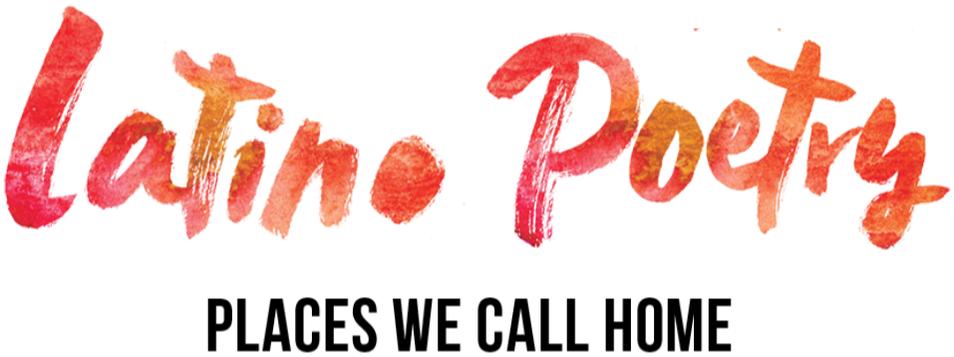Teaching the Truth: An Act of Love
By Christopher Carmona
Education is an act of love. An act of compassion. It is what we pass on to remember that we were here. We survived to tell our stories. We survived to love our children. We survived to make a better world. This is the essence of teaching. It is rooted in love. But time after time, we have been faced with hate. It is with hate that fear festers. And it is hate that goes down like a jagged pill cutting everything as it tears its way into our souls. It is with hate that willful ignorance and apathy festers and grows. Apathy is the enemy of education. It is the constant antagonist that love and compassion must fight against. The only useful weapon for teachers to combat willful ignorance and apathy is the truth and the truth itself is a practice of love. bell hooks tells us that, “The word “love” is most often defined as a noun, yet all the more astute theorists of love acknowledge that we would all love better if we used it as a verb” (All about Love 1). Striving to love our communities enough to tell them the truth is a challenge we face every day as teachers. There are so many obstacles to telling the truth to our children and to our communities.
June Jordan writes, “To tell the truth is to become beautiful, to begin to love yourself, value yourself. And that's political, in its most profound way.” The fear of the truth haunts many who have lived in the shadow of myths their entire lives. Even white children are lied to about who they are and sold the same bill of goods that we all have. That the American Dream is real. That all you have to do is work hard and you will succeed. Many find too late and with much strife that this dream is only reserved for a few. This has never really changed in the history of this country. The truth is that we can change things because it was something created. Something we were told for so long. But we can change because as James Baldwin once said, “Not everything that is faced can be changed, but nothing can be changed until it is faced.” And that is the beginning of education. Learning is not always easy. It is the burn on the hand when a child touches a hot stove. It is the stories we tell our children about the ancestors of our past. Whether they be good or bad we can carry those scars deep inside ourselves. But it is the choices we make to better this world that defines us. This is the truth that we must learn. Education is a process of growth as growth is uncomfortable. "The paradox of education is precisely this - that as one begins to become conscious one begins to examine the society in which he is being educated." (James Baldwin "A Talk to Teachers." Saturday Review [December 1963]).
Our American School System has been founded on canons and white histories that have often ignored the contributions of people of color and made heroes of those that punished those people of color. Whether this has been intentional or simply ignorant doesn’t matter. We are all products of this "American" educational system. A system that has always been political, no matter what the politicians and pundits spew out on the Sunday morning talk shows. Education and the teaching of history have often been told through a mythification of white and European men and vilified anyone who wasn’t [the brown worlds and cultures]. The teaching of history in this educational system has always been written with cowboy logic. Stoic. Solitary. And viciously violent. There always had to be a villain in the story of “America.” As Vine Deloria, Jr. writes in his seminal work, Custer Died For Your Sins, "Before the white man can relate to others he must forego the pleasure of defining them. The white man must learn to stop viewing history as a plot against himself."
As a wave of bills flood state legislatures across the country trying to stem the tidal wave of ethnic studies courses in public schools, this paranoia is every present. It is fueled by the fact that the country is 40% not white and gaining. In Texas, the student population is only 27% white. Meaning that 73% are students of color and 53% of those are Latinx students. The demographics and the cultures of this America have already changed, and the white supremist power structures have already crumbled. This is a challenge to the status quo. It is like trying to put the genie back in the bottle when there is no more bottle. Like that little Dutch boy with his finger in the dam. But it’s too late, the dam has already broken. Yet, the finger is still there trying to legislate the world back into times when African American and Latinx peoples were subservient. Where white wealth ruled, and people of color served them. They can’t see that their own rhetoric has led to the change of the fabric of power in this country. Democracy was never a white concept. It was an indigenous one. Yet it is throughout the entire founding documents of this country. From the Declaration of Independence, “We hold these truths to be self-evident, that all men are created equal, that they are endowed by their Creator with certain unalienable Rights, that among these are Life, Liberty and the pursuit of Happiness.” We have always held these words tight and continue to do so because even though these men may have written the documents that founded this country, they didn’t do it without the rest of us. The African slaves, the Native Americans, the Asians and the Mexican Americans who built the West. These stories are just as important as Washington crossing the Delaware.
So, the question then becomes, what are these legislatures really afraid of? Why is teaching the truth about this county’s history such a threat? What is patriotism if not striving for a better country for all? After all, it is in the Declaration of Independence. Is it because the truth means coming to terms with your own transgressions? Is it because when we have an educated populace, your rhetoric will fall on doubting ears? If power gains its power from ignorance, then it is no power at all. Ignorance infects us all with fear and hate and the only remedy is Love. And Love only comes from understanding and education. It is the only balm that heals all wounds. It is a practice we must all engage in to be free to pursue our happiness. As bell hooks believes, “To engage the practice of love is to oppose domination in all its forms” (Writing Beyond Race 198).
June Jordan writes, “To tell the truth is to become beautiful, to begin to love yourself, value yourself. And that's political, in its most profound way.” The fear of the truth haunts many who have lived in the shadow of myths their entire lives. Even white children are lied to about who they are and sold the same bill of goods that we all have. That the American Dream is real. That all you have to do is work hard and you will succeed. Many find too late and with much strife that this dream is only reserved for a few. This has never really changed in the history of this country. The truth is that we can change things because it was something created. Something we were told for so long. But we can change because as James Baldwin once said, “Not everything that is faced can be changed, but nothing can be changed until it is faced.” And that is the beginning of education. Learning is not always easy. It is the burn on the hand when a child touches a hot stove. It is the stories we tell our children about the ancestors of our past. Whether they be good or bad we can carry those scars deep inside ourselves. But it is the choices we make to better this world that defines us. This is the truth that we must learn. Education is a process of growth as growth is uncomfortable. "The paradox of education is precisely this - that as one begins to become conscious one begins to examine the society in which he is being educated." (James Baldwin "A Talk to Teachers." Saturday Review [December 1963]).
Our American School System has been founded on canons and white histories that have often ignored the contributions of people of color and made heroes of those that punished those people of color. Whether this has been intentional or simply ignorant doesn’t matter. We are all products of this "American" educational system. A system that has always been political, no matter what the politicians and pundits spew out on the Sunday morning talk shows. Education and the teaching of history have often been told through a mythification of white and European men and vilified anyone who wasn’t [the brown worlds and cultures]. The teaching of history in this educational system has always been written with cowboy logic. Stoic. Solitary. And viciously violent. There always had to be a villain in the story of “America.” As Vine Deloria, Jr. writes in his seminal work, Custer Died For Your Sins, "Before the white man can relate to others he must forego the pleasure of defining them. The white man must learn to stop viewing history as a plot against himself."
As a wave of bills flood state legislatures across the country trying to stem the tidal wave of ethnic studies courses in public schools, this paranoia is every present. It is fueled by the fact that the country is 40% not white and gaining. In Texas, the student population is only 27% white. Meaning that 73% are students of color and 53% of those are Latinx students. The demographics and the cultures of this America have already changed, and the white supremist power structures have already crumbled. This is a challenge to the status quo. It is like trying to put the genie back in the bottle when there is no more bottle. Like that little Dutch boy with his finger in the dam. But it’s too late, the dam has already broken. Yet, the finger is still there trying to legislate the world back into times when African American and Latinx peoples were subservient. Where white wealth ruled, and people of color served them. They can’t see that their own rhetoric has led to the change of the fabric of power in this country. Democracy was never a white concept. It was an indigenous one. Yet it is throughout the entire founding documents of this country. From the Declaration of Independence, “We hold these truths to be self-evident, that all men are created equal, that they are endowed by their Creator with certain unalienable Rights, that among these are Life, Liberty and the pursuit of Happiness.” We have always held these words tight and continue to do so because even though these men may have written the documents that founded this country, they didn’t do it without the rest of us. The African slaves, the Native Americans, the Asians and the Mexican Americans who built the West. These stories are just as important as Washington crossing the Delaware.
So, the question then becomes, what are these legislatures really afraid of? Why is teaching the truth about this county’s history such a threat? What is patriotism if not striving for a better country for all? After all, it is in the Declaration of Independence. Is it because the truth means coming to terms with your own transgressions? Is it because when we have an educated populace, your rhetoric will fall on doubting ears? If power gains its power from ignorance, then it is no power at all. Ignorance infects us all with fear and hate and the only remedy is Love. And Love only comes from understanding and education. It is the only balm that heals all wounds. It is a practice we must all engage in to be free to pursue our happiness. As bell hooks believes, “To engage the practice of love is to oppose domination in all its forms” (Writing Beyond Race 198).
Sources:
Baldwin, James. "A Talk to Teachers". Saturday Review [December 1963]).
Deloria, Jr. Vine. Custer Died For Your Sins: An Indian Manifesto. University of Oklahoma
Press, 1988.
hooks, bell. All About Love: New Visions. William Morrow Paperbacks, 2018.
--. Writing Beyond Race: Living Theory and Practice. Routledge, 2012.
Jordan, June. Some of Us Did Not Die: New and Selected Essays. Civitas Books, 2003.
Baldwin, James. "A Talk to Teachers". Saturday Review [December 1963]).
Deloria, Jr. Vine. Custer Died For Your Sins: An Indian Manifesto. University of Oklahoma
Press, 1988.
hooks, bell. All About Love: New Visions. William Morrow Paperbacks, 2018.
--. Writing Beyond Race: Living Theory and Practice. Routledge, 2012.
Jordan, June. Some of Us Did Not Die: New and Selected Essays. Civitas Books, 2003.
Comment Box is loading comments...
|
|








